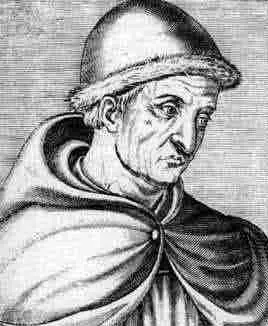William of Auvergne, who was a secular teacher in Paris, took position in front of Aristotle, according to the interpretation of Avicenas and return to Augustinian Platonism. This movement favorable to Augustinism was promoted by the order of the Franciscans as a sort of reaction to Aristotelism of “Arab” origin which was perceived as a threat,
This return to Augustinism supports the following postulates:
Knowledge by divine enlightenment: the immutable truths that are the object of human understanding cannot be attained by sensitive knowledge, but must be “eternal reasons” existing in the divine mind. Understanding corresponds to the unique and divine agent of Arab philosophy.
Universal Hilemorphism: Spiritual creatures are also composed of matter and form, but “spiritual” matter but this is incorruptible, inextensive and pure potentiality.
Seminary reasons: Matter is also active because it determines the appearance of form.
There is a plurality of substantive forms
An eternal ab creation of the world is impossible
The soul: its independence from the body isrelative
Primacy of will over understanding
Relationship between reason and faith: the relationship is intimate but not as clearly distinguished as in Thomism
Alberto the Great, was the one who recounted Aristotle's first adptation, this Dominican, is not a pure Aristotelian, but accepts in parallel, several theses coming from Platonism.
In fact, Aristotelian thought (particularly the Arabic interpretation) was complex for the Platonic-Augustinian tradition of scholastic thinkers.
Albert the Great also disseminates the scientific treatises of Aristotle, and he himself was a naturalist. But it will be Thomas Aquinas who carried out the enormous task of assimilating Aristotle to scholastic.
 Bacon (1210-1292) was the principal representative of the Oxford school.
Bacon (1210-1292) was the principal representative of the Oxford school.
It brings together a group of Franciscans who are oriented towards the research of nature, in tune with the interests initiated by the school of Chartres in the 12th century.
They follow the Augustinian tradition, although something that clearly claims to the very essence of Aristotelism is incorporated: necessity from experience. Understanding experience as the basis of knowledge of nature, as external experience, but also of knowledge of the supernatural in the form of inner experience of divine enlightenment.
Bacon affirmed the value of mathematics as a logical instrument for all other sciences, and conducted numerous research in the field of optics, astronomy, natural history and grammar. Thus appear the first lines of what will later be modern science.